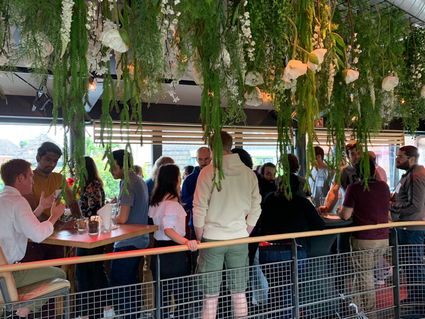Corporate Culture

The Dutch business world is not a high power distance culture. It is characterized by equality and consensus.
Equality
In the Netherlands, people tend to regard others as equals. People do take an interest in jobs and status, however these are not significant subjects in informal settings. Although Dutch organisations do have a hierarchical structure, this hierarchy tends to be more flat and an employee can for example argue with or question a manager. Managers will regularly ask their team members for feedback or input. In most cases this will mean that they are open to constructive criticism.

Consensus
In line with the inclination towards social equality, Dutch decision-making aims for consensus. During a decision-making process the views of everyone concerned are heard. Often a compromise is reached that is agreeable to all parties. Having many meetings during office hours is a much used method for exchanging views in the run-up to a decision. This process can take a great deal of time before a decision is made. Once made, decisions are quickly implemented and will be regarded as final.

Like any country, the Netherlands has it's own norms when it comes to the work floor.
Meetings
When attending or organizing a business meeting in The Netherlands, bear in mind the following:
- The Dutch have a dislike for unpreparedness and lack of planning, so make sure to prepare for a meeting. If you are organizing a meeting, then provide enough lead time for meeting preparation.
- Punctuality is important in Dutch culture, so get to a meeting on time. People who are not punctual are considered unreliable.
- The Dutch are not into excessive pre-meeting socializing and ‘small talk’ before discussing business. Instead, during an appointment or meeting they like to come straight to the point.
- Meetings tend to be rather formal and well-structured, following the meeting agenda. A weak or loose agenda is considered a waste of time.
- During the meeting the Dutch will be polite but direct. Try not to be over-polite. This is distrusted in Dutch culture and often regarded as a waste of time.
- During the meeting everybody is expected to contribute. Meetings are often used for exchanging views in the run-up to a decision. Since Dutch decision-making aims for consensus, it is important for everyone in the meeting to contribute and share their opinion.
- Make sure the information you are presenting in the meeting is factually accurate, well-structured and backed up by evidence. Relations are often based on trust, so don't make promises you can't keep and avoid over-inflated claims or hard selling.
- ‘Afspraak is afspraak’ (‘Agreement is agreement’). Not honouring an agreement can damage the relationship.
- Expect follow-up meetings and plan for them in advance.
Working hours
Typical working hours in the Netherlands are between 8.30 AM and 5 PM (office jobs), Mondays to Fridays, with a half hour lunch break in the middle. Most organisations cannot be contacted outside these working hours. Other working hours apply to industries such as hospitality and construction.

Work life balance
The Dutch value quality of life. Although work is important to them, they can be found reluctant to work overtime and tend to prefer extra time with the family over an increased salary. Many Dutch people, men and women alike, work part-time, and 24 or 32 hour working weeks are not unusual. Wednesdays and Fridays are the most common days to be off work for part-timers and these days tend to be spent with the children. (On Wednesdays Dutch primary school kids have the afternoon off, and some also on Fridays. Also, the Friday is a popular day off as it creates a ‘long weekend’.)

Dress code
On the whole, the Dutch are casual dressers. There are major differences in how people dress in various business settings. The nature of an organisation is a determining factor when it comes to dress code. Banks are known for a ‘suit culture’, whereas casual clothing is usually the standard for organisations in the cultural sector. If you are unsure, then dress up rather than down and wear a suit for your first meeting.

Practical tips
-
When making a phone call, always state your name (and if necessary your company name). When someone calls you, do the same: pick up the phone and mention your name (and company name).
-
When the Dutch introduce you to someone, give that person a brief, firm handshake, make eye contact and state your name. Upon leaving you shake hands again and thank the person for the visit/meeting. Failing to introduce yourself will be considered rude.
-
The Dutch do not use titles when they talk to people. In writing, you can state a title, but this is only done in official letters.
-
Many Dutch people bring their own home-made sandwiches to work, which they eat during their half hour lunch break.
-
When it is your birthday your colleagues might expect you to bring cake to work to share with them.
Be more effective at work
Proper (inter)cultural understanding will benefit you on several levels during your stay in the Netherlands, for example by increasing your productivity at work, by improving your personal and company image, by reducing personal stress and by preventing unnecessary irritation, immediate confusion or misunderstanding down the line. If you wish to learn more about how to interact with the Dutch effectively, then we are happy to refer you to one of our specialised partners.
Service providers


